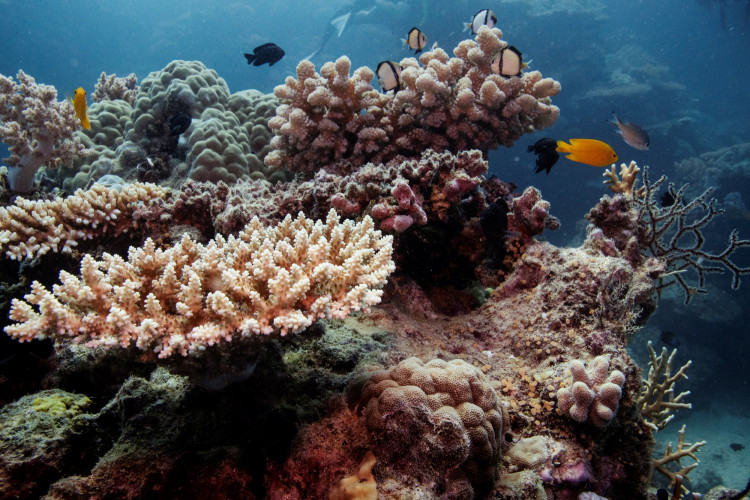A new study has shed light on the rate of reef destruction, accelerating quicker than previously thought.
Scientists have long known that coral reefs are in danger, but a new study published in the journal One Earth quantifies coral losses around the world. According to the detailed investigation, half of the coral reefs have been lost since the 1950s.
Climate change, overfishing, and pollution, according to scientists, are decimating these sensitive ecosystems and jeopardizing communities and livelihoods.
Their research, which is among the most extensive assessments of reefs and their related biodiversity to date, highlights the alarming rate of global coral decline.
"Coral reefs have been in decline worldwide-I think that's pretty commonly accepted," Tyler Eddy, a research scientist at Memorial University of Newfoundland who co-authored the study, said. "We didn't necessarily know the magnitude of how much, when we looked on a global scale, that reefs had declined."
The researchers examined data from 14,705 surveys of over 3,500 reefs from 87 countries.
In addition to discovering that half of all living corals have died since the 1950s, researchers discovered that biodiversity associated with coral reefs has decreased by 63%. Healthy reefs can support thousands of different corals, fish, and marine mammals, but bleached reefs can no longer support as many.
The study also showed that coral reef fish catches peaked in 2002 and have been dropping since then, despite increased fishing effort. Furthermore, the study found that coral species loss was not uniform across reefs, with some corals proving more sensitive than others, leading some biologists to fear that some vulnerable coral species will be lost before they can be documented or preserved.
Coral reefs are among the most heat-sensitive ecosystems on the planet. Coral reefs are threatened by warming oceans, which cause bleaching. Algae offer nutrition to coral by photosynthesis, but when they get heat stressed or overexposed to sunlight, they generate a toxin instead. The algae is then expelled from the coral, which causes it to bleach.
Bleaching can be fatal in some cases, depending on how severe it is.
Scientists have explored a number of approaches to protect reefs from the threat of rising ocean temperatures.
Cloud brightening, which entails thickening clouds with salt water to make them reflect more heat back into the atmosphere, autonomous killer drones, and the use of advanced robotics to manufacture corals are just a few examples.






